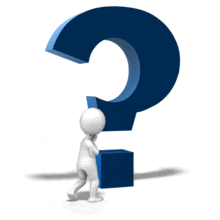Shabbat Table Talk from the desk of Rabbi Alexander Seinfeld
Jan 17-18, 2025 • 18 Teves 5785 • Shemos (Ex 1-5).
Dovetailing on last week's Superman theme, many people I talk to feel the need to be a superhero.
They feel a great weight on their shoulders of big problems. National problems. Global problems.
And of course they feel helpless, because most of the time they are helpless.
Look, if you know me, you know that I've been the first one on the block to roll up the sleeves and do something. I'm not usually armchair-quarterbacking through life.
They feel a great weight on their shoulders of big problems. National problems. Global problems.
And of course they feel helpless, because most of the time they are helpless.
Look, if you know me, you know that I've been the first one on the block to roll up the sleeves and do something. I'm not usually armchair-quarterbacking through life.
Yes, everyone should vote. Every vote counts, right?
Sort of. Maybe. Sometimes, maybe.
Does it really matter if I try to plant trees to offset my carbon footprint?
Does it really matter if I walk to work and avoid adding some tiny amount of microplastics to the oceans?
Sort of. Maybe. Sometimes, maybe.
Does it really matter if I try to plant trees to offset my carbon footprint?
Does it really matter if I walk to work and avoid adding some tiny amount of microplastics to the oceans?
Does it really matter if I write my Member of Congress to ask him to stop wasting money on mailing out customized 2025 We, the People Calendar to constituents?
This calendar is the epitome of government waste. Putting aside the fact that it's a wall calendar adorned with humdrum pictures of Washington, DC, every date of the year is pre-filled with "factoids for each day corresponding to the same date 200 years earlier."
For example:
January 16 — 1825: J. Q. Adams dines with J. W. Taylor.
January 17 — 1825: PA legislature condemns an act passed in NY allowing NY to use PA lands for mining.
January 18 (spoiler alert!) — 1825: House considers appropriation to complete "the Public Road" from Pensacola to St. Augustine, in teh Florida Territory.
I'm not sure what's more stunning, that our dear Congressman would consider it appropriate to purchase and send out these calendars, or that someone would consider it an appropriate use of resources to research and produce them.
Given this context of problems large and small, today's burning question is, What's the most important thing to be doing right now?
I would like to suggest an answer based on the Rambam (Maimonides). He says that the reason we were put on this Earth is not to solve the world's problems. There is no such tikkun olam imperative in Classical Judaism. The imperative is tikkun hanefesh - to repair yourself. And that means - per the Rambam - to think. We were put here to learn how to think.
Question for your table: What does he mean by that?
Shabbat Shalom
This calendar is the epitome of government waste. Putting aside the fact that it's a wall calendar adorned with humdrum pictures of Washington, DC, every date of the year is pre-filled with "factoids for each day corresponding to the same date 200 years earlier."
For example:
January 16 — 1825: J. Q. Adams dines with J. W. Taylor.
January 17 — 1825: PA legislature condemns an act passed in NY allowing NY to use PA lands for mining.
January 18 (spoiler alert!) — 1825: House considers appropriation to complete "the Public Road" from Pensacola to St. Augustine, in teh Florida Territory.
I'm not sure what's more stunning, that our dear Congressman would consider it appropriate to purchase and send out these calendars, or that someone would consider it an appropriate use of resources to research and produce them.
Given this context of problems large and small, today's burning question is, What's the most important thing to be doing right now?
I would like to suggest an answer based on the Rambam (Maimonides). He says that the reason we were put on this Earth is not to solve the world's problems. There is no such tikkun olam imperative in Classical Judaism. The imperative is tikkun hanefesh - to repair yourself. And that means - per the Rambam - to think. We were put here to learn how to think.
Question for your table: What does he mean by that?
Shabbat Shalom




No comments:
Post a Comment